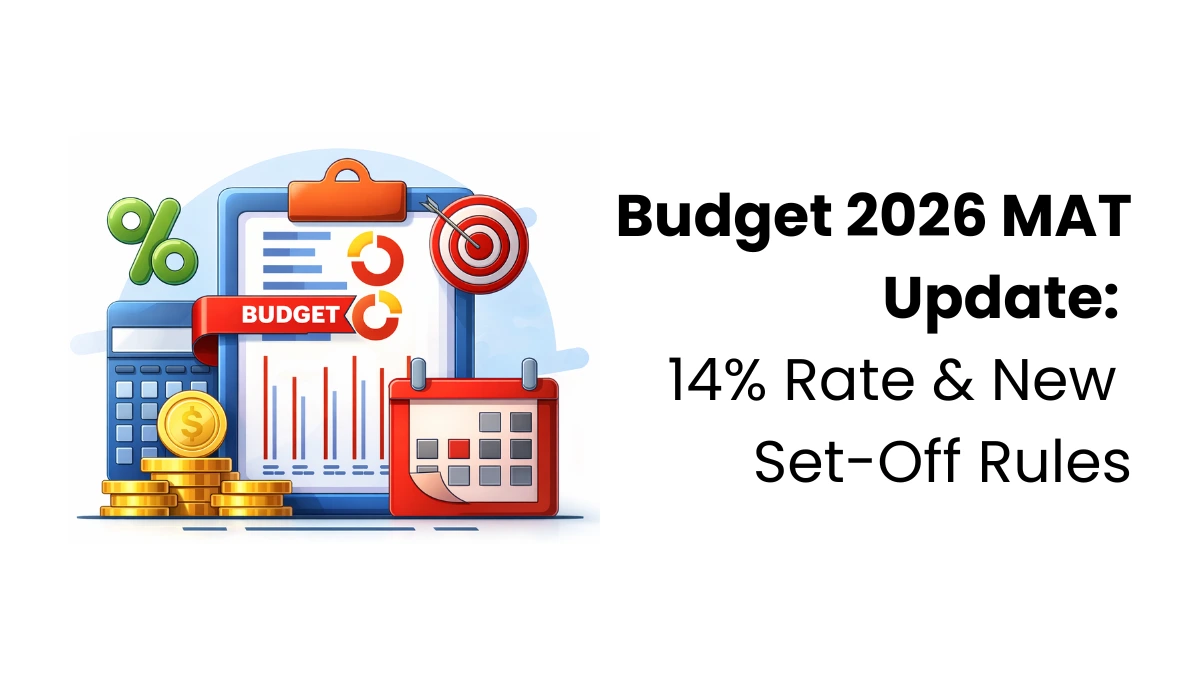An organization can succeed only if it is financially stable. The majority of businesses fail due to cash flow issues, so understanding cash flow management is a prerequisite. If there is good cash flow management in your business, then that means your business is thriving. To achieve good cash flow management, we have to ensure that we follow good cash flow strategies. First, we have to study our business. Then, determine which areas in our industry need cash flow, and also, we should optimize expenses and invest where it can be beneficial for the business.
What is meant by Cash Flow Management?
Cash Flow Management is the process of monitoring, analysing, and optimizing the cash flow in and out of the business. Here, we track cash flow and ensure there are sufficient funds to meet the company’s financial obligations and future investments. If a company must remain financially stable without going bankrupt, it must plan its expenses very carefully. Even delayed client payments, unexpected bills, or a slight decrease in sales can push things out of balance. That is why we say cash flow management in business is important.
Types Of Cash Flow
There are different types of cash flow. They are listed below:
- Operating Cash Flow (OCF): If a company generates cash from its regular operating activities, such as selling products or services, then this cash flow is called operating cash flow. If OCF is positive, we understand that the generated funds can be utilized to cover ongoing expenses, such as employee and supplier payments. This indicates that the financial organization is financially healthy.
- Investing Cash Flow (ICF): If a company is trying to invest in property or a machine, it requires money to invest. There is a cash outflow. Similarly, when a company sells off its assets, there will be a cash inflow. ICF monitors the company’s investment-related matters.
- Financing Cash Flow (FCF): When a company raises funds from external sources, such as stocks or bonds, it is financing its operations, including paying debts and repurchasing shares. So this cash flow is called financing cash flow.
Various Components of Cash Flow Management
There are several components in cash flow management in business. They are
- Cash Inflows: Cash is entering your business via investments, sales, loans, etc.
- Cash Outflows: Giving cash to others for purposes like employee salaries, rent, utilities, inventory costs, loan repayments, and taxes
- Accounts Receivable and payable: The accounts receivable collect cash from customers. The accounts payable team ensures that payments to suppliers are made correctly.
Several Cash Flow Strategies
There are several cash flow strategies that will be helpful for businesses. If you’re interested in applying these skills professionally, explore opportunities like an accountant job vacancy in Kerala, where expertise in cash flow management and financial planning is highly valued. The strategies are as follows:
- Cash Flow Forecasting: By analyzing past historical data and future expectations, businesses can forecast the potential cash shortages or surpluses. This allows them to take additional measures, such as adjusting expenses, negotiating with suppliers, etc.
- Streamlining accounts receivable: To receive money faster, set reminders for those who owe you money. Also, offer benefits, such as discounts, to those who remit payments before the due date. These techniques can increase cash inflow to the company.
- Optimizing accounts payable: Negotiating with the suppliers regarding payment, taking advantage of the benefits of early payment, and regularly reviewing expenses can optimize cash outflow.
- Maintain Reserves for Emergencies: If any emergency arises that requires money, the reserves will be of great help. In unforeseen circumstances, anything could happen. In such times, reserves will enable businesses to continue their streak.
Advantages of Positive Cash Flow
Whenever there is more money made than spent by you, then there is a positive cash flow. Having positive cash flow means you have enough money to run a company’s operations. Also, it will meet the payment requirements to the suppliers, payroll, rent, etc. Efficient cash flow management, whether calculated through direct or indirect cash flow methods, will allow it to optimize its working capital.
Financial Stability
If you are managing cash flow effectively, it will lead to the financial stability of the business. This will reduce financial distress during emergencies.
Increased Growth Opportunities
Positive cash flow offers greater growth opportunities such as expansion, research and development, etc.
Excellent Credit Rating
Suppose businesses can pay their debts, such as interest payments. They will have an effective credit rating and access to financing on favourable terms.
Preparation
A business with good financial condition will be prepared for any unforeseen challenges, such as any extra expenses.
Impacts of Negative Cash Flow
Negative Cash flow is the opposite of positive Cash Flow. With Negative Cash Flow, we mean that more money is going out of the company than coming in. Understanding the basics of cash flow statement helps identify where the money is going and why the cash outflows exceed inflows. Its impacts are listed below:
Financial Strain
Negative Cash flow can cause significant financial strain for companies. This will disrupt regular activities, such as meeting day-to-day expenses, including salaries, rent, and utilities.
Limited Growth Opportunities
Limited Funds can limit the company’s growth opportunities. This will efficiently affect the investments in research and development.
Increase in Borrowing & Interest Cost
If there is a negative cash flow, there will be an increase in borrowing and interest cost. This approach will cause less profitability.
Affects Credit Rating
Negative Cash Flow will affect the Company’s finances, there will be high interest rates, and therefore, there will be a chance for credit denial and limited access to financial resources.
Less Employee Retention
Existing employees will be confused about the company’s financial stability and will be tense about their salaries. More will try to quit that company if there is a negative cash flow.
Delay in paying Suppliers
Delays in paying suppliers can hurt relationships with them. Suppliers will hesitate to provide extra credit, which will affect overall product delivery.

Why Cash Flow Management is a Must for Small Businesses?
Let’s explore the importance of cash flow management in business in detail.
Survival During Unexpected Scenarios
There are good times and bad times in businesses. Cash flow management is essential when a business is experiencing unexpected losses.
Meeting Operational Costs
If we manage cash flow effectively, small businesses can prioritize and meet operational costs without delays in payments.
Eliminates Unwanted Debts
If you know where your money is going, there will be no debts, as you can plan your finances carefully.
Healthy Relationship with Suppliers
If you correctly pay suppliers and maintain good cash flow management, you will build healthy relationships with suppliers and vendors.
Prevent Payroll Problems
In small Businesses, cash flow management is a necessity as it avoids payroll problems among employees by clearly giving salaries on time.
Knowledge Of Financial Patterns
If cash flow is carefully assessed, small businesses can indeed know the financial patterns within a month. This will allow better financial forecasting.
Removes Unwanted Stress & Tension
If businesses understand what is cash flow management, then it will teach them to manage all expenses and sit tension-free about using finances effectively.
Take Apt Decisions
Small Businesses can make wise decisions, whether they need to buy equipment, hire a new employee, or make other financial decisions, if the organisation is well aware of its cash flow.
Some Cash Flow Mistakes Businesses Make
Now we know why cash flow management is essential, let’s point out some mistakes businesses make.
- Depending on a few large clients
- Less management of receivables and offering long payment terms.
- Less daily expense tracking
- Poor inventory control, thereby leading to overstocking
- Fail to do financial forecasting
Each of these mistakes can affect your liquidity, so keep an eye on your cash flow and make good financial decisions.
Conclusion
If you are a business owner, remember that every single paisa counts. In business, making a decision is a very risky job. That is why we should know what is cash flow management. If you run a business, this knowledge will give you the power to make better financial decisions. It will provide you with overall financial control of your organisation. Your motto must be your company’s overall financial stability. Keep this in mind whenever you make a single financial decision.
FAQs
1. What is meant by cash flow management?
Cash flow management means tracking how money moves in and out of your business — making sure you have enough cash to pay bills, employees, and other expenses on time.
2. Why is cash flow important for a business?
Good cash flow keeps your business running smoothly. Without enough cash, even profitable businesses can struggle to pay expenses or invest in growth.
3. What causes poor cash flow?
Late customer payments, overspending, high inventory, or poor budgeting are common reasons for cash flow problems.
4. How can I improve my cash flow?
Send invoices quickly, offer discounts for early payments, control expenses, and monitor your cash regularly using accounting tools or reports.
5. What’s the difference between profit and cash flow?
Profit shows how much your business earns after expenses, while cash flow shows how much actual cash is available to use. A company can be profitable but still face cash shortages if money is tied up in unpaid invoices or stock.










